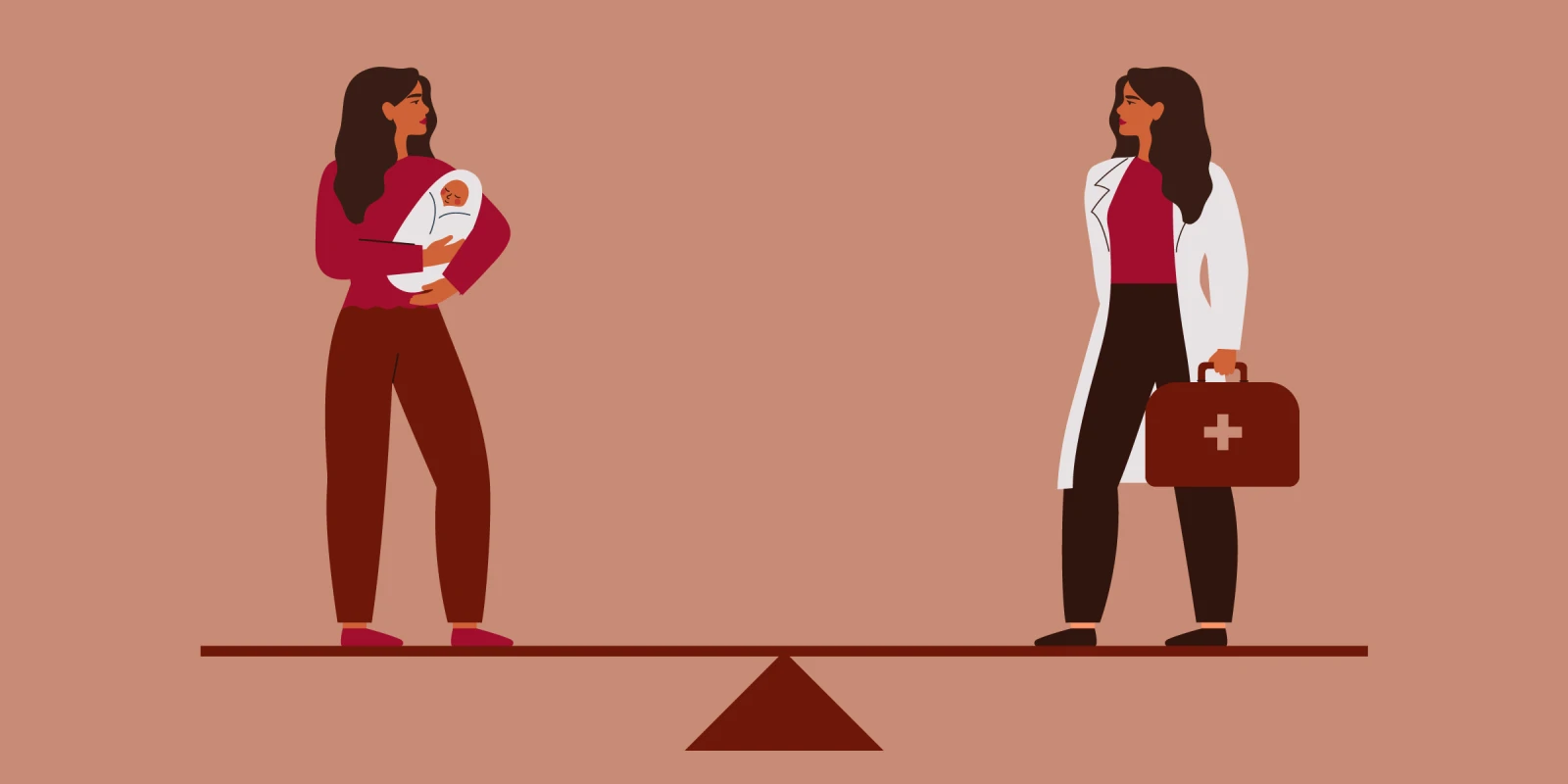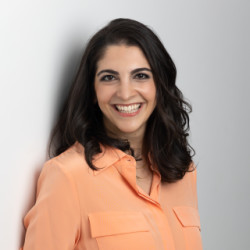“I never took a single day off because of my daughter in all my years of training or practicing,” she said with a touch of pride. “Maybe you need to consider live-in childcare.”
As though the thought had not occurred to me. The year was 2020, we were facing a global pandemic, and I had just received word that my daughter had been exposed to COVID-19 through someone at her daycare. I was working three days a week as an independent contractor to cover a colleague’s cosmetic oculoplastics practice while building up my solo practice. She was the only other physician in the practice, but was out of town. Meanwhile, my husband was pulled into working a grueling schedule as an intensivist at a local hospital, and we did not have access to extended family or backup sitters to help. Given the circumstances, I felt I had no choice but to reschedule my patients for the day. Shortly thereafter, I received a call from my colleague, who was indignant at the disruption and potential loss of revenue from the schedule change.
Immediately after the call, I felt shame, anger, and disappointment. As far back as I could remember, I had prided myself on being a staunch feminist, advocating for women’s abilities to accomplish everything men could. The sky was the limit, and I had dedicated most of my life to advancing myself academically and professionally.
I was never certain that I wanted to become a mother. I met my husband during my intern year, and though he and I happily welcomed the birth of my daughter, I deferred pregnancy until after my training because I did not want any chance of compromising my opportunities or of being perceived as less than because of it. I was also mindful of keeping the door open for other women who might choose to follow in my footsteps. I did not want to create the perception among selection committees that such candidates would fail to provide the necessary level of commitment due to a preoccupation with conventionally female concerns like motherhood and achieving work-life balance.
When I reflected on the feelings unearthed from the phone call with my colleague, I realized I was facing a familiarly uncomfortable juxtaposition between the old versus the new versions of feminism, something I believe many female physicians have grappled with throughout their careers. During her training decades ago, my colleague may have had to separate and compartmentalize her roles as a mother and a physician to receive the respect she was rightly due. Much as I was trying to shape others’ views of my work ethic, she may have felt compelled to conceal her challenges to protect her professional persona as a physician first and a mother second.
I first noticed this dichotomy well before I became a mother myself. During training, whenever a new female physician was hired, there was a certain level of trepidation regarding whether and when she might have children and how that might compromise her performance. Female attendings would wax philosophical about the time a new hire might take for maternity leave. This would lead to them sharing anecdotes about how quickly they returned to work – not with a sense of frustration, but rather with a sense of accomplishment. In my first job, when my boss suggested I wear more dresses because he had heard reports that my wardrobe choices were too casual, I asked the office manager whether there was an employee handbook section on uniform requirements for the staff. By contrast, my older female physician colleague suggested that I capitulate, stating that she could provide me with a pearl necklace and some black slacks to elevate my attire. It seemed as though prior generations of female physicians felt consistently compelled to demonstrate their dedication to their work, disavowing the notion that they were both physicians and mothers. Instead, they concealed their roles as mothers as much as possible to be taken seriously.
My disappointment with the status quo stems not from a desire to swing the pendulum toward ignoring or minimizing the compromises inherent to taking time from work to focus on one’s family. I believe that these challenges are true of fathers as well as mothers. Rather, my frustration stems from the inability to forge one’s path without being pigeonholed purely based on certain facts like being a woman or a mother. Some mothers may wish to return to work immediately after giving birth, while others may wish to leave the workplace altogether or go part-time. Men making similar decisions would face the same professional compromises, but I would venture to guess that no assumptions would be made based on preconceived notions about their intended commitment to one versus the other. Nor do I suspect that male attendings earn bragging rights by discussing how little time they choose to take off from work to take care of their children.
What led to my indignation during the conversation with my colleague was the assumption that because I had rearranged my work schedule that day, I was somehow “less than” as a physician. Perhaps some truly believe this to be the case, but I have a hard time affirming that these incidents detract from the commitment I have shown to my profession. I find it heartbreaking that so many women before me have had to live with that choice instead of recognizing that these choices are unavoidable in a world where one decides to raise a family. They deserve respect in their careers based on their training and achievements, irrespective of whether they choose to have a family.
My hope for future generations of physicians is that we find room for women to craft their professional lives the way they choose without judgment. While I recognize the very real concerns about missed training time to take maternity leave or equitable division of call and clinic schedules, it is unreasonable to expect women who choose medicine to forgo having children. The reality is that their primary child-bearing years occur during their training and work as young attendings. It is also true that mothers disproportionately remain the primary caregivers in the household.
In light of these circumstances, female physicians in mentorship positions should express a greater understanding of the challenges we collectively face, giving younger female physicians more grace. Rather than view our prior struggles as badges of honor, we should embrace a broader view of our roles and allow for greater complexity in how we express ourselves, recognizing that there is room to be successful professionally and personally without denying one or the other.
How has your view of feminism in medicine changed over time? Share in the comments!
Dr. Mahsa Sohrab is an oculoplastic surgeon located in Greenwich, CT. When she is not busy managing her own practice, she enjoys writing, sewing, reading, and globetrotting with her husband and daughter. Follow her on Instagram @drmahsasohrab. Dr. Sohrab is a 2024–2025 Doximity Op-Med Fellow.
Image by Mary Long / Shutterstock







